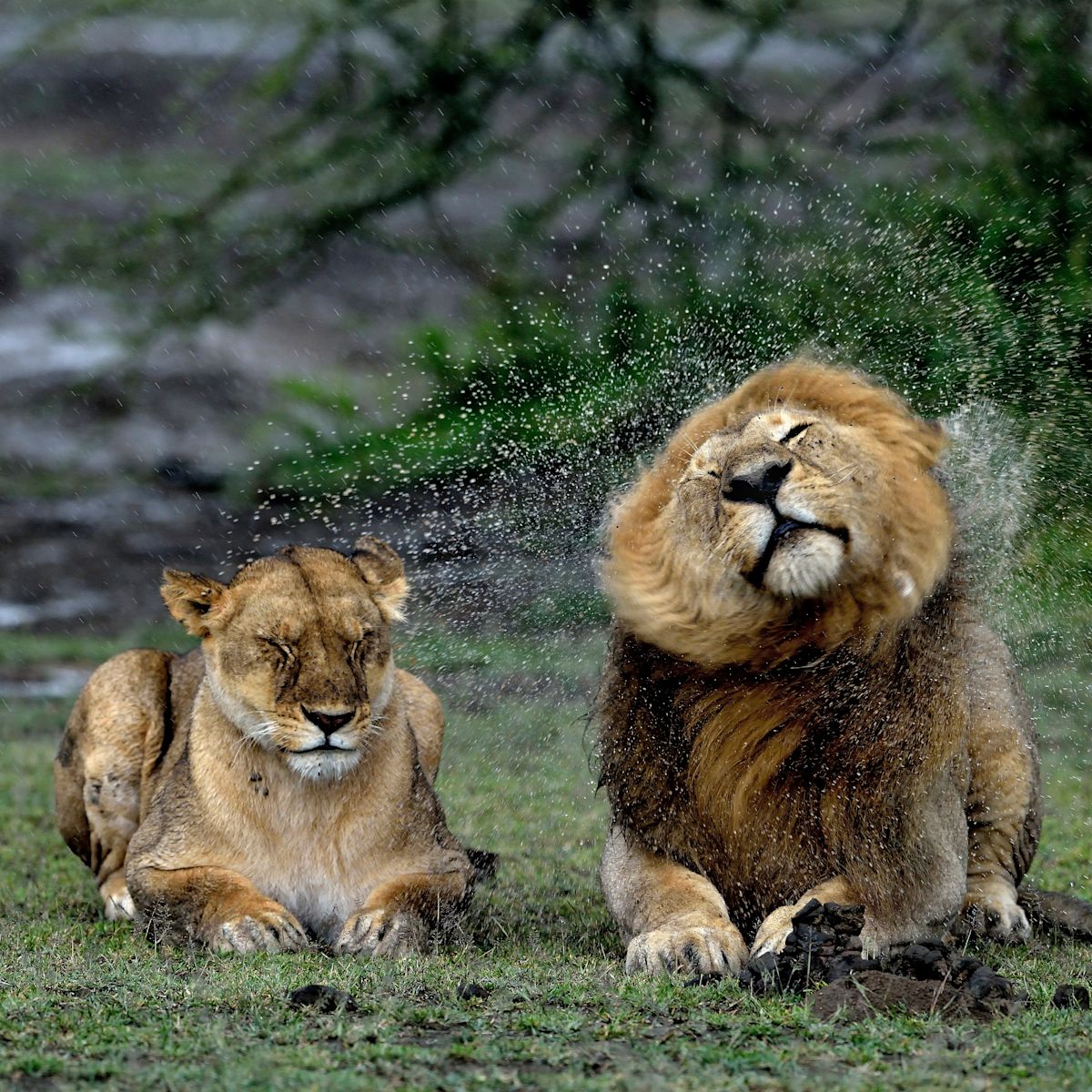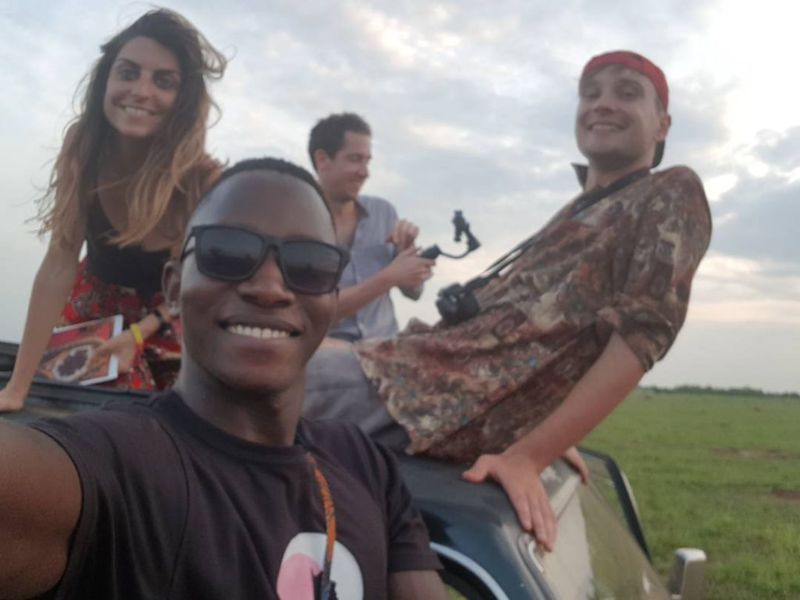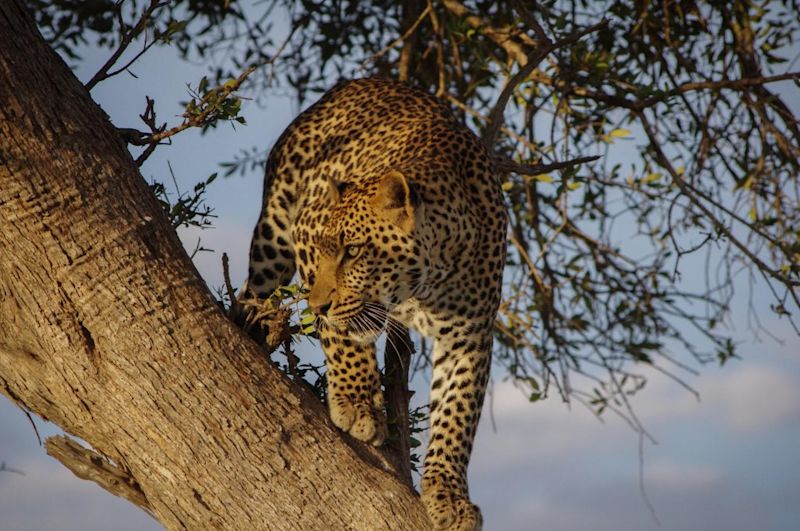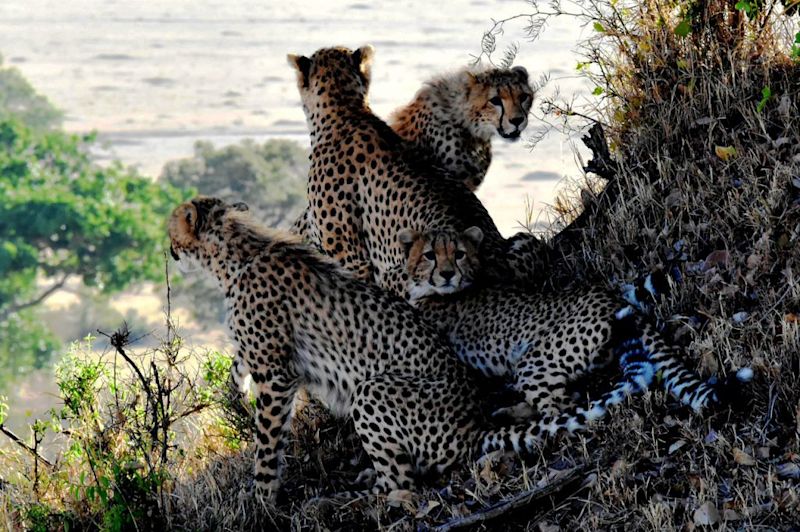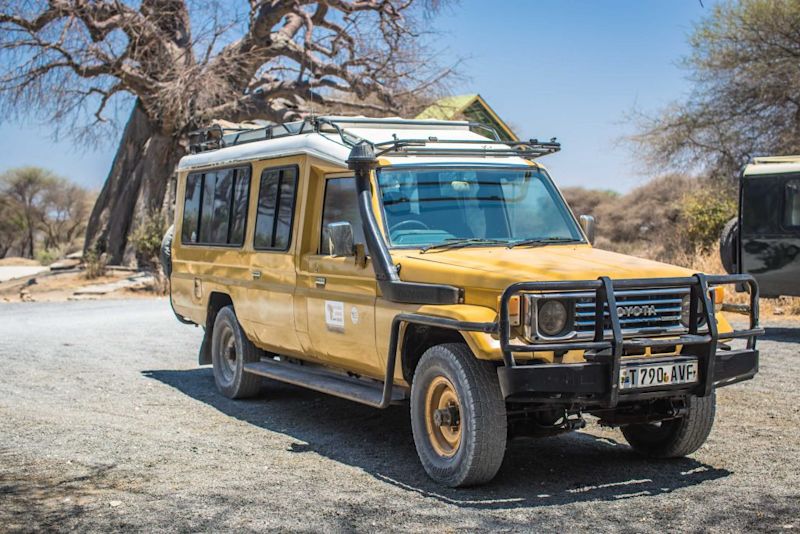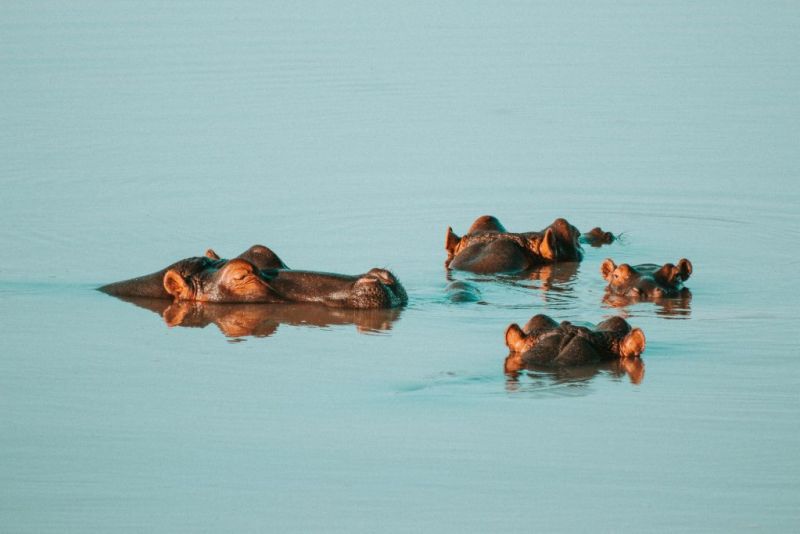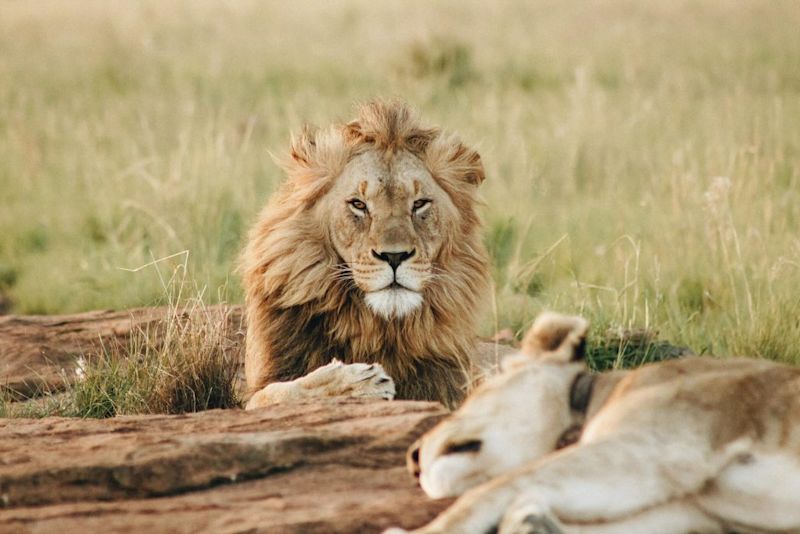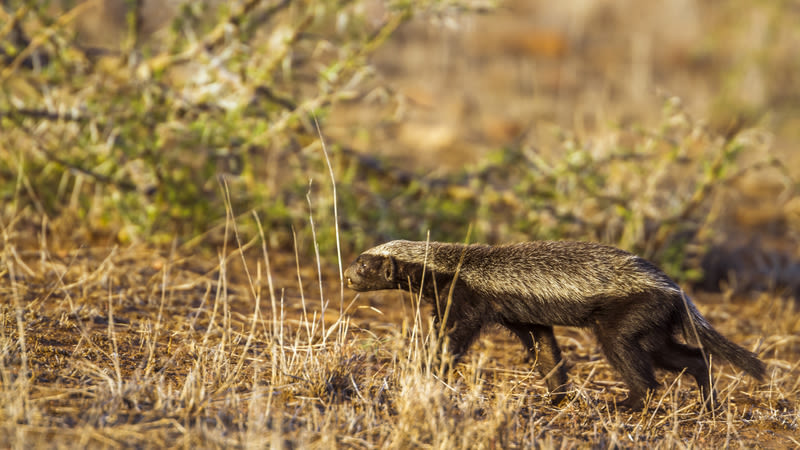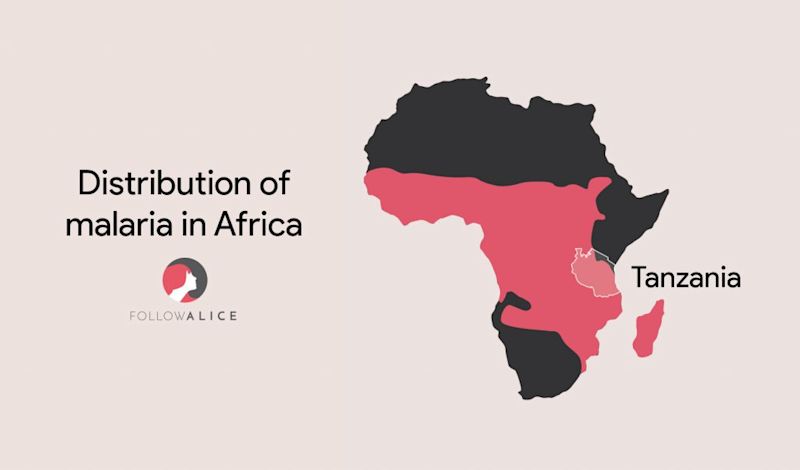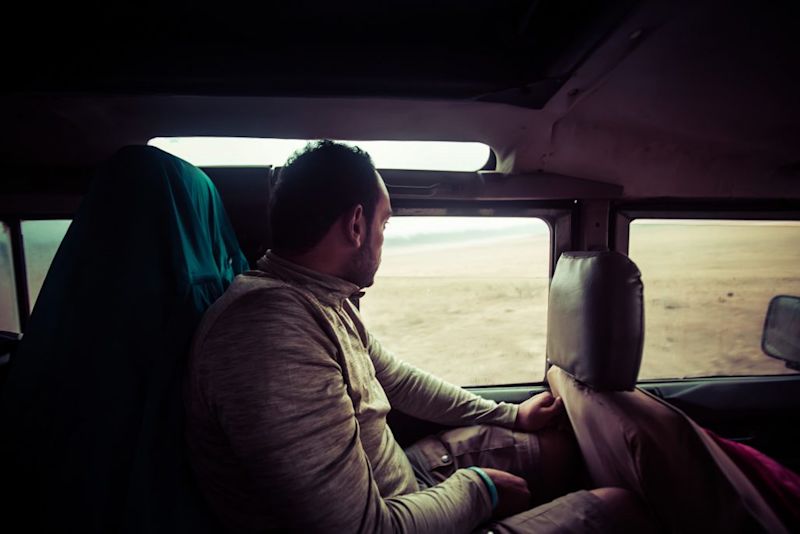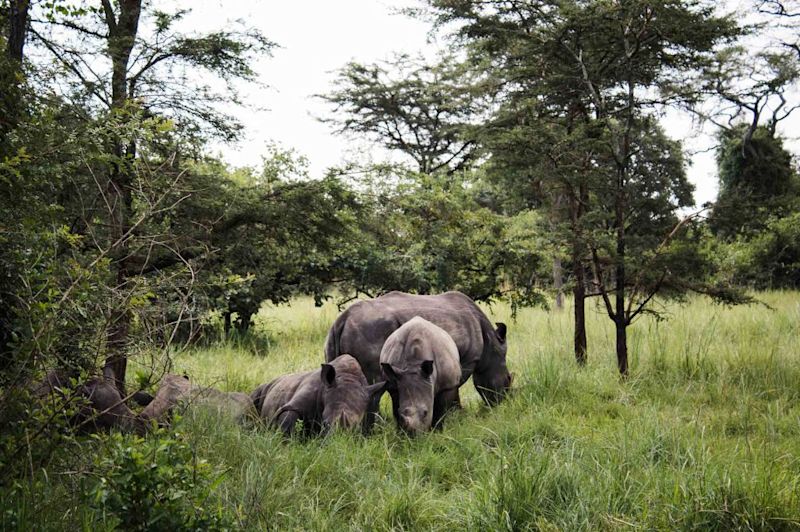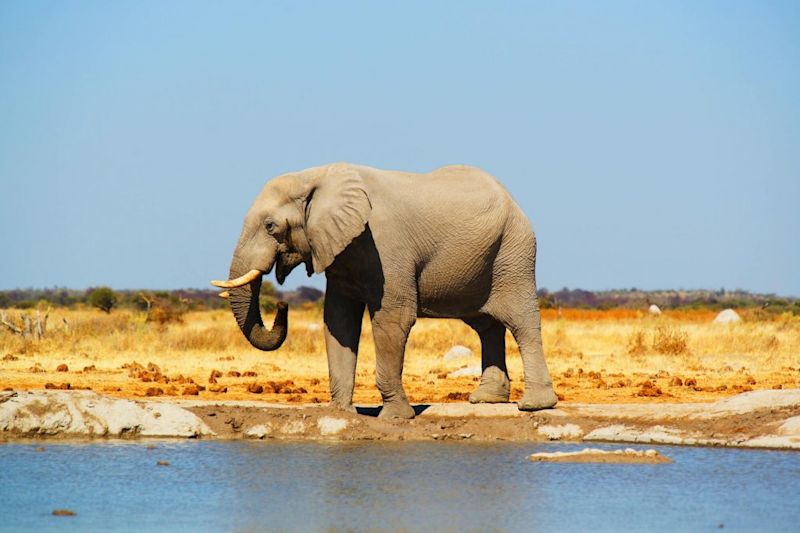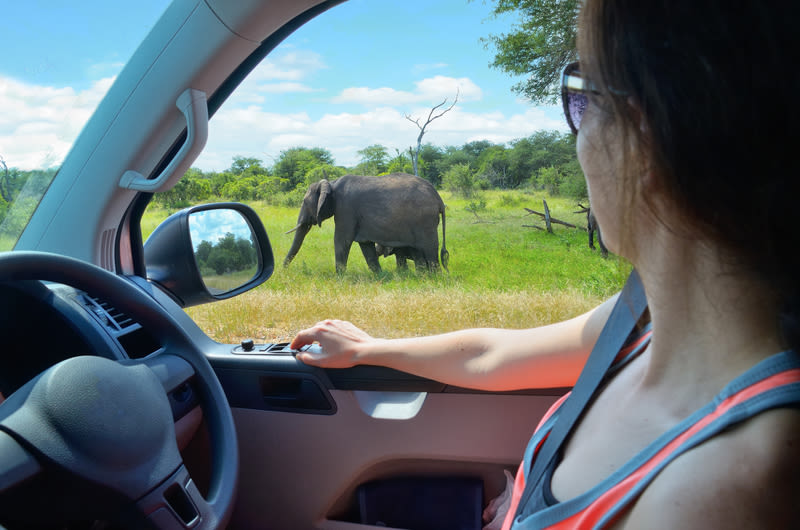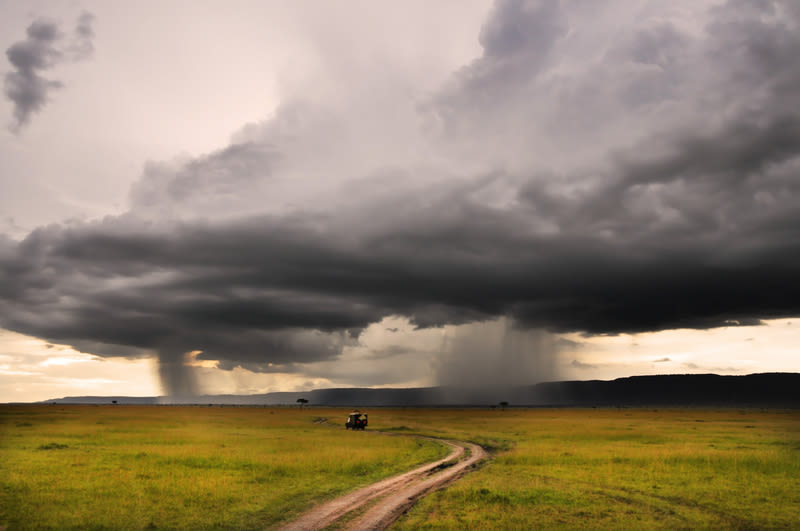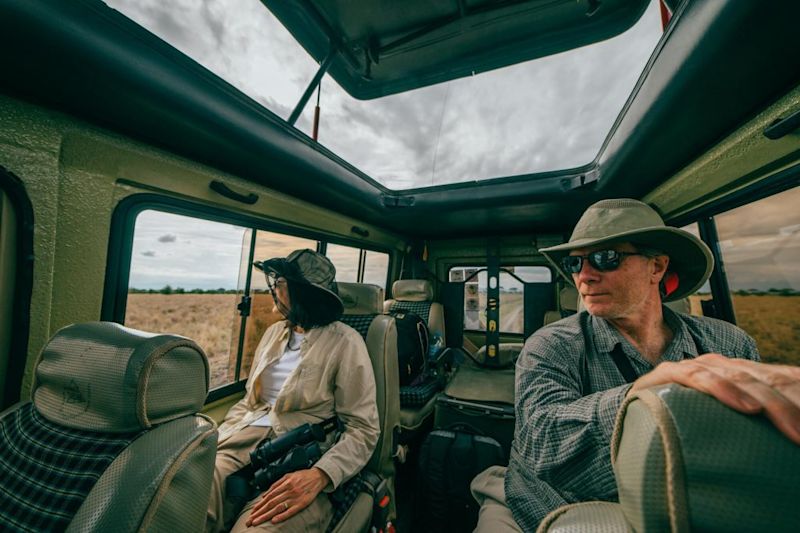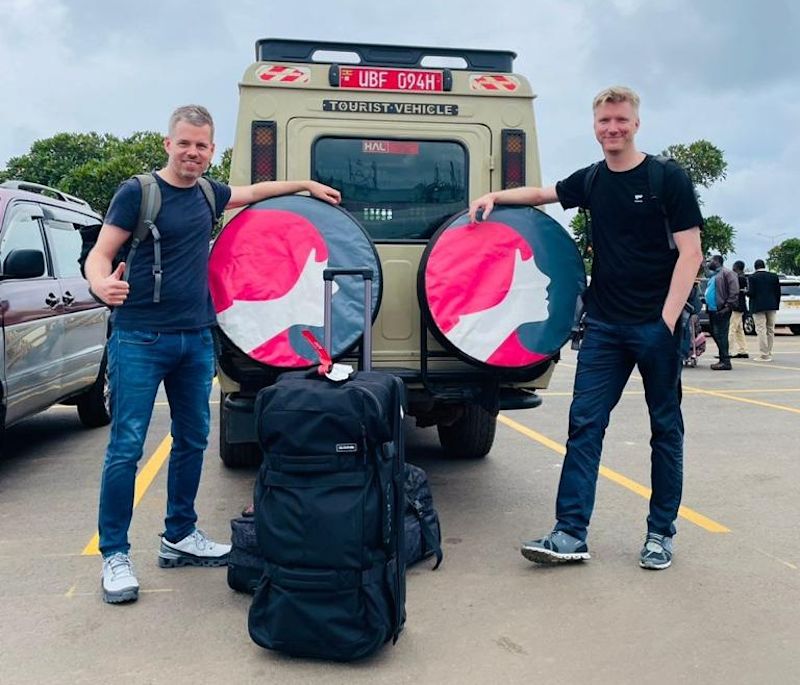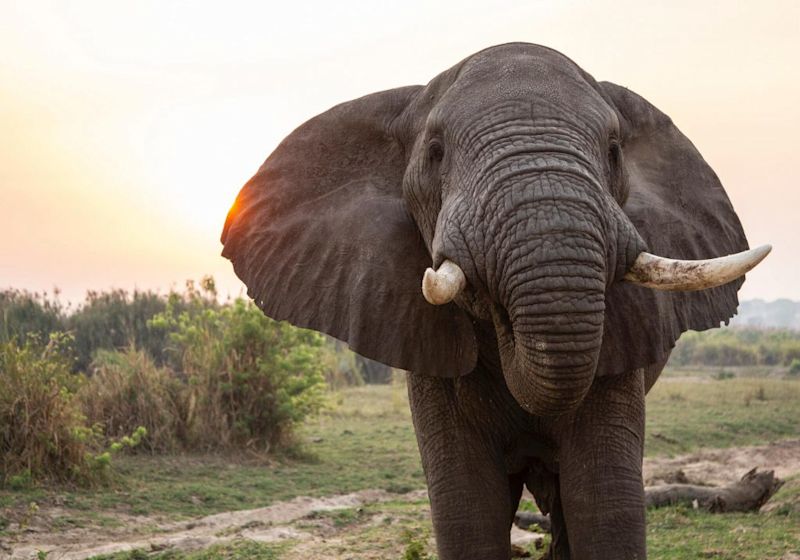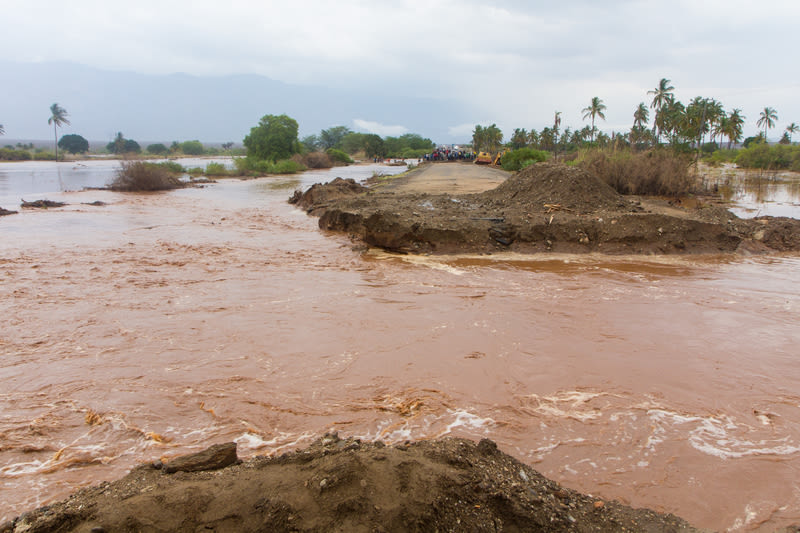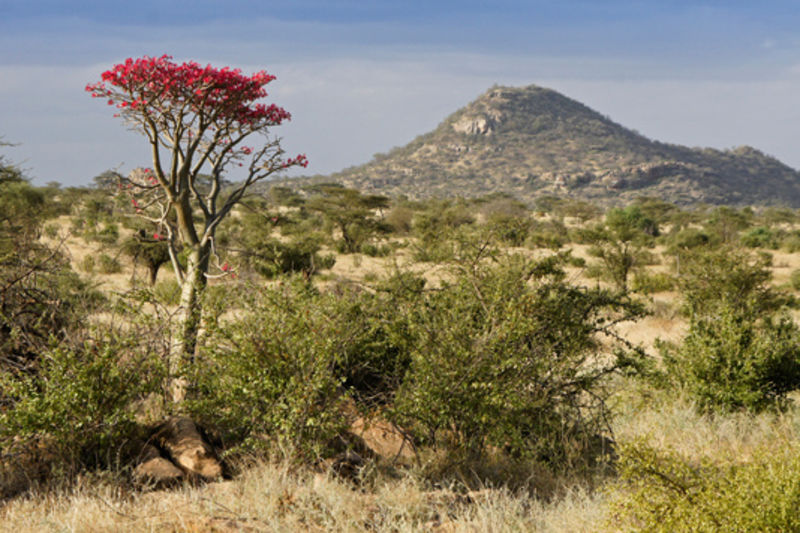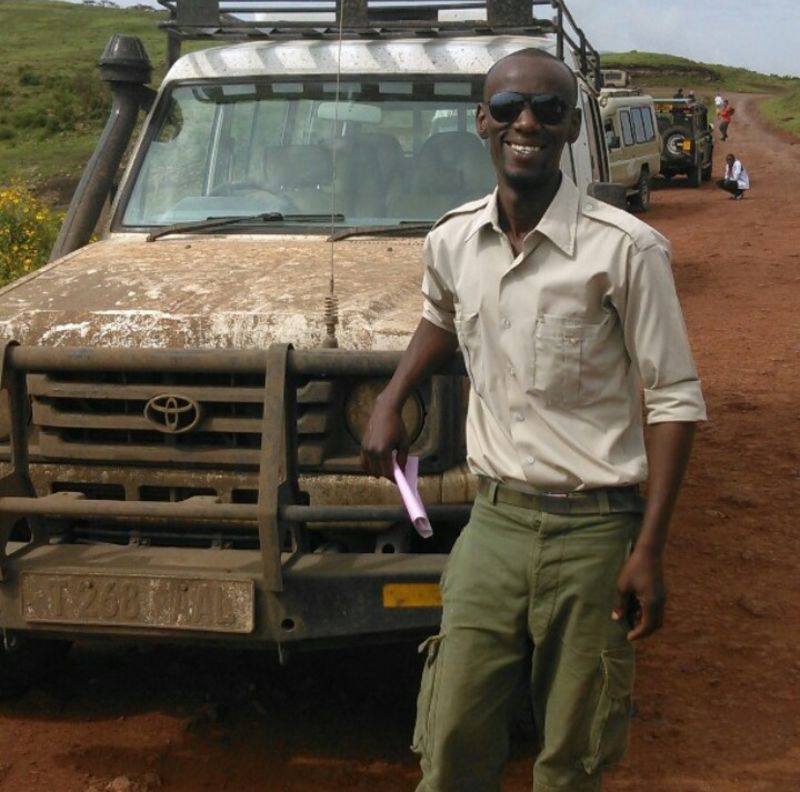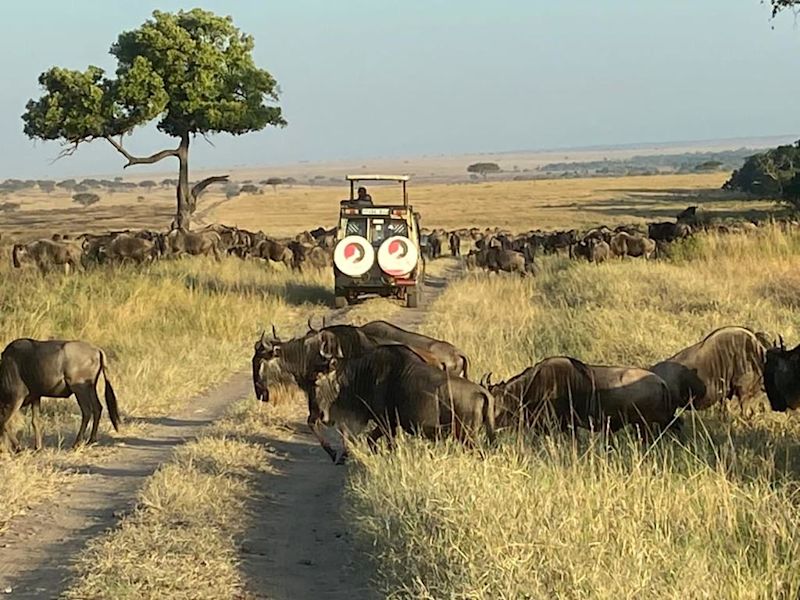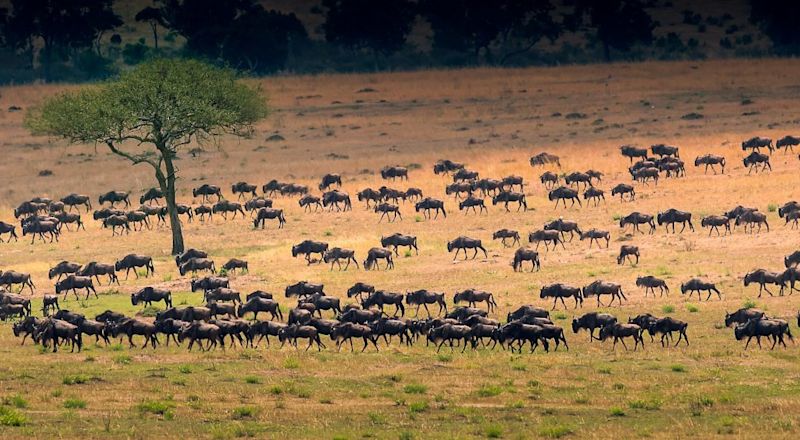We all know that if you plop yourself down among a circle of baboons, you’re asking for trouble.
So we’re not going to use this blog post to talk about the importance of not feeding or petting the wildlife on safari. We assume you know that already. Instead, we’re going to offer you some solid safari safety tips that are actually worth your time.
An African safari is an unforgettable experience
There are two primary aspects to safari safety:
- Ensuring you’re safe from the wildlife (both big and minute).
- Avoiding any dangerous or unstable regions.
That said, there are some other points we're going to make that are more about comfort than outright danger, like not getting stuck in a muddy rut and spending the night camped out in your 4x4.
Enough preamble.
How to stay safe on a safari drive
Safaris aren’t dangerous by nature.
That said, a safari – like riding a bicycle or stepping out your front door – is not entirely risk free. We take our lives into our hands every day. But we’re happy to report that a safari isn’t dangerous if done right.
Leopards are elusive, making spotting one on a game drive a real coup!
When it comes to African wildlife, there are many dangerous animals, both large and small. And many will happily bite, buck, sting or stomp you if you aggravate them. (And just being in their way can be aggravating to some.) But the good news is that you’re not in danger from the wildlife unless you act recklessly or stupidly.
Cheetahs don't hassle humans unless the humans hassle them first
So you want to be sensible in the manner you go about game viewing, whether you're doing a self-drive safari or an organised one.
The main thing for keeping safe is to stay inside your vehicle when in a game park (unless your safari guide says it's safe to get out). We repeat: your vehicle is your safety shield on safari. Stay inside of it!
If you spot some exciting wildlife, don't jump out of the vehicle to photograph it – stay where you are and take a pic from there! #Safety101
Even if you see a solitary, sweet, doe-eyed duiker next to your car, don't get out to snap a close up (use your zoom lens for that). You never know what else is lurking just beyond view. And even the animals that look super cute and cuddly can sometimes be dangerous under the right set of circumstances.
Always stay inside your vehicle unless your tour guide indicates it's safe to step out
Which are the most dangerous African animals?
It’s surprisingly difficult to pinpoint the most dangerous animal in Africa.
This is because danger comes in many forms. Some animals are hazardous because they have brute strength, others because of their immense size, and others because of their fearsomely strong jaws and sharp teeth.
Still others are highly dangerous because of their speed, wiliness, venom or camouflage.
So is the most dangerous African animal the lion? He’s the king of the jungle, after all. But what about the elephant, which can crush you like a petal? Or the giraffe, which can actually decapitate you with a kick? Or the hyena, which has the strongest jaws of any mammal?
We also mustn't forget to consider the hippo. In spite of its ungainly appearance, the hippo is surprisingly swift, and is also aggressive to boot. In fact, hippos kill more Africans on average than any other large land mammal. (But once again, they – like other animals – are only dangerous to safari-goers if you step out of your vehicle.)
Hippos are the most dangerous of Africa's large land mammals, not lions
But wait, we must consider some other gnarly creatures before crowning our Most Dangerous Animal winner ...
The Big Five
Colonial-era hunters coined the term ‘the Big Five’ to identify the large game that they found to be the most dangerous when hunted on foot.
This is because these animals (lions, bush elephants, Cape buffaloes, leopards and black rhinos) are very aggressive when aggravated or cornered. But we don’t, of course, advocate hunting the Big Five or any other animals for that matter. Spotting them is sport enough!
Did you know that the Cape buffalo is actually considered the most dangerous of the Big Five? This is because they will actually pursue or ambush hunters when feeling under threat.
Lions are formidable predators, but they're far from being Africa's most dangerous animal
Other (surprising) contenders
But when we think of fearsome wildlife, we can't forget the terrible Nile crocodile! These beasts have jaws almost four times stronger than those of hyenas. (Shudder.) And there's also the puff adder, whose camouflaged skin and venom make an awful combination.
Another contender many might overlook is the honey badger. This small creature is one of the strongest, toughest and most ferocious creatures out there. In fact, a honey badger will take on pretty much any species if the need arises, from lion to leopard to hyena.
Looks can be deceiving – NEVER mess with a honey badger
Our pick for the winner
But if the most dangerous creature were to be decided purely based on the number of human fatalities, then the tiny malaria-transmitting mosquito is the most dangerous of all African animals.
Malaria is the scourge of Africa. According to WHO, it killed over 400,000 Africans in 2019.
Is malaria a problem on safari?
Most people thinking of a safari want to know if they’re safe from animals, imagining irate lions and ticked-off rhinos.
But really, it’s the tiny mosquito that presents the biggest threat.
Female anopheles mosquitoes that are infected with the malaria parasite bite and transmit the disease to hundreds of thousands of people in Africa every year.
Map of malaria distribution in Africa
As you can see from the map, many African nations sit squarely in the malaria zone. So this isn’t an issue you can ignore when planning a safari. Instead, it should form an integral part of your travel prep.
How do you protect yourself against malaria?
There are two ways to protect yourself from malaria. Firstly, we recommend visiting your local GP to ask after anti-malaria meds.
Secondly, once in a malaria-risk area:
- Use insect repellent.
- Wear long pants and long sleeves, as well as closed shoes.
- Sleep under a mosquito net.
Fit for Travel has a nice page on malaria prevention that we can also recommend for learning more on this important topic.
Long-sleeved shirts protect you from sunburn and mozzie bites
Which is the safest country for safari?
You also want to visit a safe country.
We discuss which African countries offer good game spotting while also being safe for tourists. We know you want to see the Big Five (elephants, lions, rhinos, buffaloes and leopards), so we highlight the safest countries containing these magnificent animals.
The main way to be safe on safari is to know what you’re doing, or travel with someone who does.
The endangered rhino is a favourite among many safari-goers
Of the African countries that offer really good safari opportunities (and contain the Big Five), the following are the safest according to both the Global Peace Index and general consensus (in alphabetical order):
- Botswana
- Kenya
- Namibia
- Rwanda
- Tanzania
- Uganda
- Zambia
While some of these countries have had some security issues in recent years, those issues have been in areas far from the safari parks. In other words, they're all perfectly safe to visit when you're heading there on safari. Botswana is considered the safest of all African nations. And Zambia is ranked as the third safest nation.
We personally have no issue trotting off to any of the above-mentioned destinations. And we often do!
Botswana is Africa's safest country, while also being a seriously epic safari destination
6 self-drive safari tips
A big decision for would-be safari-goers is whether to do a self-drive safari or sign up for an organised one.
Some folks understandably enjoy the independence and thrill of a self-drive. That's totally fine. We just don't, however, advise going with this option unless you have done your homework thoroughly.
Some parks are better suited to self-drive safaris than others
You need to have a decent vehicle with high clearance to go on a game drive on your own. Depending on the terrain and condition of the roads or tracks, you might also need a four-wheel drive. Further to this, you need to know how to handle your vehicle really well in rough terrain or you could become unstuck ... by getting stuck.
Each park and reserve is different in terms of size, terrain and road conditions, so be sure to do your research first.
We recommend doing a self-drive safari only in smaller parks that have good signage and decently maintained tracks. Be really cautious of heading out on your own in wet or muddy conditions.
It's also better to do a self-drive safari only if you have GPS, or if the park has good cellphone coverage.
You should also think twice about a self-drive safari if you're heading into a very large park that isn't well-marked to help you navigate your way. Not all parks and reserves offer the same amenities, quality of roads, and so on. If you do on your own, be sure to never leave the demarcated road, not just because this usually isn't allowed, but also for your own safety.
If you get lost in one of the big parks, help could well be very, very far away
Ideally, you should do a first safari drive with a guide in the passenger seat before heading out on a self-drive. Use that initial drive to quiz your driver on how to stay safe and drive in a safe manner.
Here are some further tips for those looking to do a self-drive safari:
- Never get closer than 20 m (65 ft) to large game, especially Cape buffaloes, rhinos and elephants.
- Give a wide berth to injured animals and those with young.
- Don't hoot (honk) or shout at animals to try get them to turn, raise their heads, and so on. Similarly, don't wave wildly at the animals.
- Drive very cautiously around solitary elephants and buffaloes.
- Don't rev your engine loudly around the animals, as this could startle or alarm them.
- Don't bring smelly foods like fruits in the car with you. Many animals have an excellent sense of smell, and may want a taste of what you're having.
You need a 4x4 that can handle vast distances and rough terrain in order to go on safari safely
When on safari, please think of yourself as visitors in the animals' home; you should act respectfully and not make a nuisance of yourself. The less that humans interfere with the day-to-day lives of the wildlife, the better.
In fact, sometimes animals are put down after attacking people, even though it was actually the latter's fault for provoking them. Don't be the sort of human who comes on safari and leaves a legacy of death.
Most incidents in game parks occur when people grow overly confident. Respect the wildlife, remembering that it is indeed just that: wild.
Why organised safaris are safer than self-drives
Organised safaris offer many perks, such as providing you with an appropriate safari vehicle as well as a driver-cum-guide. (Safari tour operators usually organise your accommodation for you too.)
The vehicle used in a game drive is important in terms of comfort, safety and reliability
From a safety point of view, going on safari with a tour operator is a very good idea. Qualified tour guides have in-depth knowledge of how to keep you safe (in all respects).
Specifically, the safety advantages of going on safari with a trained tour guide are:
- They have the right sort of vehicle and training and so can safely and effectively navigate the often tough, muddy terrain. (Sitting in a broken-down 4x4 in a hot game park is no bueno.)
- Safari guides know which animals are dangerous, and in what ways, so they can act sensibly and advise you of what to do and not do in all situations.
- They know how close you can get to the different animals while staying safe and also not scaring them off.
Male elephants are more aggressive during musth, a period of heightened testosterone
Further to all this, safari guides also know about the different animals' life stages and patterns. For instance, male elephants are particularly aggressive during musth (a period of heightened testosterone). So one should drive extra judiciously when in the presence of such individuals to avoid being charged.
Other perks of organised safaris
Some of the other perks of going on safari with a trained guide but that aren't related to safety are:
- Safari guides are excellent at game spotting! They'll notice and point out animals you'd otherwise have missed.
- Your guide is in touch with fellow guides and rangers about where the best animal sightings are, as well as any problem areas like a flooded road.
- They have intimate knowledge of the animals you spot, so can really make what you're seeing that much more interesting.
Safari guides are often in touch to alert each other to issues as well as animal sightings
Safari guides help you avoid unwittingly disruptive behaviours
If you're interested in sustainable travel (which we hope you are!), a safari guide is also invaluable in helping you to reduce the impact of your visit. For instance, did you know that you shouldn't touch the vegetation?
It might seen harmless, but you shouldn't touch vegetation on a safari
There are a few reasons why your touch can be damaging to certain plants, including the fact that some plants release defensive chemicals or aromatic compounds when touched by humans. These may temporarily alter the mix of scents in the air, which could potentially affect the nearby wildlife's perception of the environment.
Who knew touching a petal or leaf could have such an impact? Well, of course, a trained safari guide knows this, and will help you to avoid such potentially harmful practices!
Kazi is one of our highly knowledgeable Tanzania safari guides
Don’t pay a tour company you haven’t researched
As with any industry, the safari tourism trade has its share of shysters.
There are tour operators who don’t train or pay staff properly, for instance, as well as full-on scammers and everything in between. Have nothing to do with them, both for your sake as well as for the sake of the tourism industry.
While a safari is a perfectly safe enterprise when done properly, it can quickly descend into something unpleasant, even dangerous, if not done right.
One of our FA vehicles on safari in the Serengeti
We advise that you thoroughly research any safari operator you’re considering using before forking out any money.
What does that research look like? Well, we suggest that you:
- Check some independent review platforms such as Trustpilot and look on sites like Facebook to see what past clients have to say.
- Look for a physical address on the website.
- Phone or email the company to assess their responsiveness and professionalism.
- Pay attention to your gut. Don't talk yourself into ignoring anything that doesn't feel right.
Never pay any money in advance to a company you’re not confident is fully legit.
Witnessing the Great Migration, which takes place in Tanzania and Kenya, is arguably the very best African safari experience
If you're interested in perhaps doing a safari with Follow Alice, please check out our various exciting safari itineraries, which include safaris in Kenya, Tanzania, Uganda and Rwanda! You can also take a look at our Trustpilot reviews.
